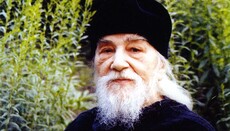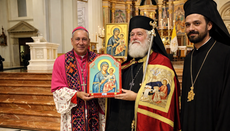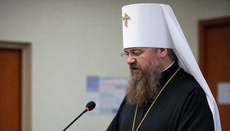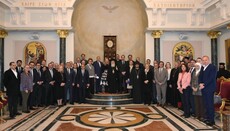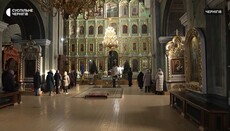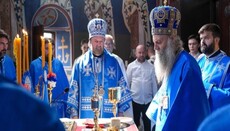Pat. Porfirije: Neither Wealth nor Poverty is an Obstacle to Salvation
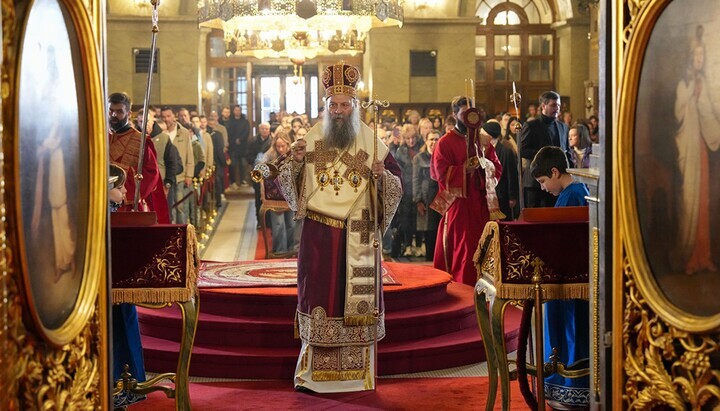
In his homily at the Cathedral Church in Belgrade, Pat. Porfirije said that true life in Christ begins through repentance and love for one’s neighbor.
This article was originally published by UOJ-Serbia.
BELGRADE — At the Cathedral of the Holy Archangel Michael in Belgrade, His Holiness Pat. Porfirije of Serbia celebrated the Divine Liturgy on Nov. 9, 2025, the feast of the Holy Martyr Nestor. During the service, the Gospel passage about the rich man and the poor Lazarus was read, and the Patriarch explained its spiritual meaning to the faithful in attendance.
This Gospel story, Pat. Porfirije said, is not a call for social equality but for spiritual transformation. The Lord did not come to change social conditions, he emphasized, but to reveal to humanity the reality of the Kingdom of Heaven, which is already present among us.
The Patriarch stressed that a person’s eternal destiny is determined not by wealth or poverty, but by his relationship with God and his neighbor. Wealth and poverty are neither punishment nor reward — they are opportunities for spiritual growth. The main lesson, he noted, lies in how one behaves in the circumstances God has given, for this reveals one’s inner faith and love.
Pat. Porfirije reminded the faithful that there are many wealthy people who, living according to Christ’s word, secretly perform acts of mercy, help the sick, and comfort the sorrowful without seeking recognition. God gave them wealth, he said, not for self-indulgence, but as a gift to be used in confirming their faith and gratitude.
On the other hand, poverty itself is not a virtue, but humility and trust in God in all circumstances of life. The rich man was not condemned for being rich, the Patriarch explained, but because he lacked love. Likewise, Lazarus was saved not simply for being poor, but because in his poverty he preserved humility and faith.
The Patriarch emphasized that the Law, the Prophets, and the Commandments were given to humanity as a guide — not as a list of orders, but as a description of the way of life of Christ, to which every Christian is called.
Life in Christ, he continued, is not merely imitation but true participation in His love and sacrifice. Within this participation lies the key to understanding the mystery of Christ: repentance.
According to Pat. Porfirije, repentance is the entry into the Kingdom of God because it restores a person’s awareness that without divine grace, he can do nothing.
Preceding repentance, he said, is the virtue that the Holy Fathers called “remembrance of death.” This is not fear of the end, but a form of spiritual sobriety that motivates one to struggle and show zeal in faith.
To remember that life is fleeting means to live consciously, responsibly, and with faith in the Resurrection. In that remembrance and repentance, a person recognizes that he is not self-sufficient, that he needs the grace of the Holy Spirit, and that without communion with the Body of Christ — the Church — there is no spiritual life.
Finally, Pat. Porfirije urged Christians to live constantly in a spirit of repentance, to offer everything they have to God as a gift and thanksgiving, and to bear witness to love for every person, no matter how difficult it may be.
“Only in this way,” he concluded, “can we hope that we too, like Lazarus, will be found in the bosom of Abraham and glorify God in eternity.”
Previously, UOJ reported that Pat. Porfirije said that, without faith, religion becomes ideology.

